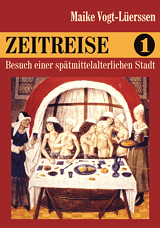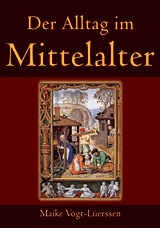Zeitreise 1 – Besuch einer spätmittelalterlichen Stadt
als Buch, Independently published, 264 Seiten, 93 SW-Bilder, € 12,54, ISBN 978-1-5497-8302-9
und als E-Book

Clara Elisabeth von Meysenburg schenkte ihrem herzoglich-kurfürstlichem Geliebten insgesamt zwei Kinder: den Sohn Ernst August (1674-1726) und die Tochter Sophie Charlotte (1675-1725).
als Buch und als E-book

als Buch

Der Alltag im Mittelalter 352 Seiten, mit 156 Bildern, ISBN 3-8334-4354-5, 2., überarbeitete Auflage 2006, € 23,90
